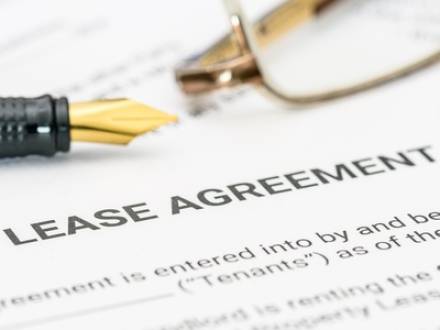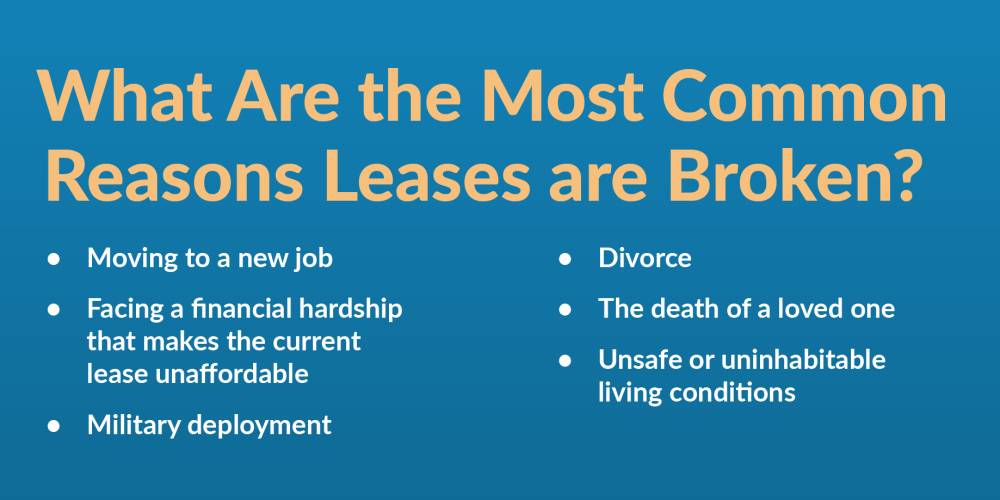Contact Our Firm
The use of the Internet or this form for communication with the firm or any individual member of the firm does not establish an attorney-client relationship. Confidential or time-sensitive information should not be sent through this form.
I have read and understand the Disclaimer and Privacy Policy.

How Much Does It Cost to Break a Lease in Florida?
 Few people intend to break their lease when they sign it. Yet life gets in the way, and sometimes it becomes a necessity. Breaking a lease in Florida is not as simple as turning in the keys and walking away. Regardless of why you are ending your lease early, it can come with significant cost because Florida does not provide renters with a free pass should they need to break a lease.
Few people intend to break their lease when they sign it. Yet life gets in the way, and sometimes it becomes a necessity. Breaking a lease in Florida is not as simple as turning in the keys and walking away. Regardless of why you are ending your lease early, it can come with significant cost because Florida does not provide renters with a free pass should they need to break a lease.
It is a good idea to understand the financial consequences of breaking a lease in Florida, including penalties, legal exceptions, and tips for minimizing the impact on your bank account and credit score. Consulting a Fort Lauderdale, FL real estate attorney before breaking a lease is always a good idea, particularly if you anticipate any legal complications or financial penalties.
Florida Law Governing Breaking a Lease
Chapter 83.03 of the Florida Statutes outlines the (few) situations in which a tenant can legally, without penalty, break a lease. These include:
- A year-to-year lease can be legally terminated by providing at least 3 months’ notice before the end of any annual period.
- A quarter-to-quarter lease can be legally terminated by providing at least 45 days’ notice before the end of the quarter.
- A month-to-month lease can be legally terminated by providing at least 15 days’ notice before the end of the monthly period.
- A week-to-week lease can be legally terminated by providing at least 7 days’ notice before the end of any weekly period.
However, most of the time, when an individual needs to terminate a lease, the timing does not fall neatly within these allowable windows. This means that breaking a lease can expose a tenant to multiple financial and legal penalties that can make renting a property challenging in the future.
What Are the Most Common Reasons Leases are Broken?
Life often gets messy when we least expect it. An unexpected twist or turn in life may require a change in residence that cannot wait until it is legal and proper to break a lease. Some of the most common reasons leases are broken include:
- Moving to a new job
- Facing a financial hardship that makes the current lease unaffordable
- Military deployment
- Divorce
- The death of a loved one
- Unsafe or uninhabitable living conditions
- Domestic violence incidents
A handful of reasons are considered "justifiable," while most others are not. Habitability issues, like the landlord’s failure to maintain the property, can be a justifiable reason to break a lease, as can military service under the Servicemembers Civil Relief Act (SCRA). In some instances, there may be domestic violence protections under Florida laws that will allow a lease to be broken without financial or legal repercussions.

How Much Will It Cost to Break a Lease?
The terms of the lease will usually dictate the cost. There are early termination clauses in most leases that describe the cost of breaking a lease. The cost could be a flat fee vs. full rent for the remaining months. There may also be a security deposit forfeiture and additional charges. Early termination fees are usually a set amount, such as two months’ rent, or the fee could be calculated based on the remaining rent due.
If the lease agreement does not specify an early termination fee or if the early termination fee does not cover the full remaining rent, the tenant may be legally obligated to pay rent until the lease term ends or a new tenant is found. For example, say the rent is $3,000 per month and a one-year lease is signed.
The tenant decides to leave after six months. He or she could potentially be on the hook for a minimum of $6,000 (two months’ rent) for the early termination fee, plus the security deposit of $3,000 and any other deposits, such as cleaning fees or pet fees. Of course, these fees will depend on the specific lease's terms regarding early termination and could potentially be significantly higher.
Is There a Way for Tenants to Mitigate the Costs of Breaking a Lease?
In some cases, discussing the situation with the landlord and attempting to negotiate a more favorable outcome can reduce the costs associated with breaking the lease. If the renter is transparent and proactive, informing the landlord as quickly as possible, it could reduce the costs. Working with the landlord to find a mutually acceptable solution is the best way to mitigate the costs of breaking a lease.
If the renter can find a new tenant, this could also reduce the costs. A tenant might even offer to pay for advertising costs for the landlord to find a new renter. Some leases allow subletting, while others do not. The landlord may ask a renter to pay the regular rent amount until a new tenant is found, but the landlord must actively try to re-rent the property.
What Are the Legal Consequences for Breaking a Lease?
A renter who moves out in the middle of the night may think he or she has gotten off without having to pay all the fees associated with early termination. However, a landlord can pursue legal action to recover unpaid rent and other damages, which could result in a legal judgment against the tenant. The landlord can sue for the remaining rent due under the lease, plus any damages to the property beyond normal wear and tear, and for the costs of re-renting the unit, including advertising and lost rent during the vacancy.
Unpaid debts from a broken lease can negatively impact one’s credit score, making it more difficult to obtain loans or credit cards. Most landlords check rental history when evaluating new applications. A broken lease with outstanding debt can make landlords view the tenant as high-risk. While landlords do have a responsibility to mitigate the damages to the tenant to the extent possible, breaking a lease is almost always expensive.
Contact a Broward County, FL Real Estate Lawyer
If you are considering breaking your lease, it is extremely important that you consult with an Oakland Park, FL real estate attorney from The Elliot Legal Group, P.A.. Attorney Elliot also practices international business law and is a licensed solicitor in both England and Wales. The firm’s reputation is built on quality, service, and integrity, and we take pride in our longstanding relationships with our clients. Call 754-332-2101 to schedule your initial attorney meeting.















